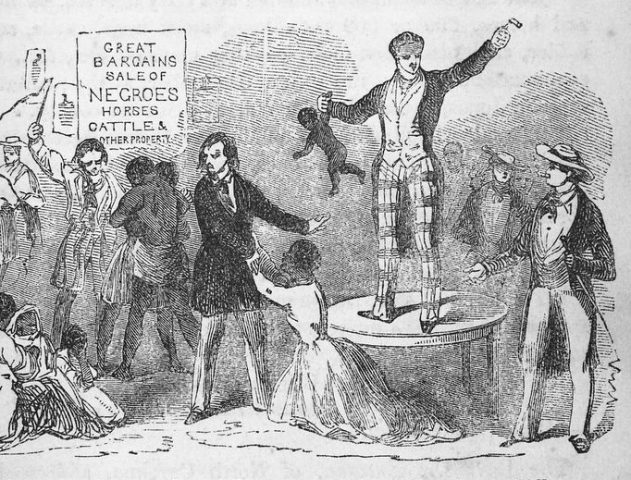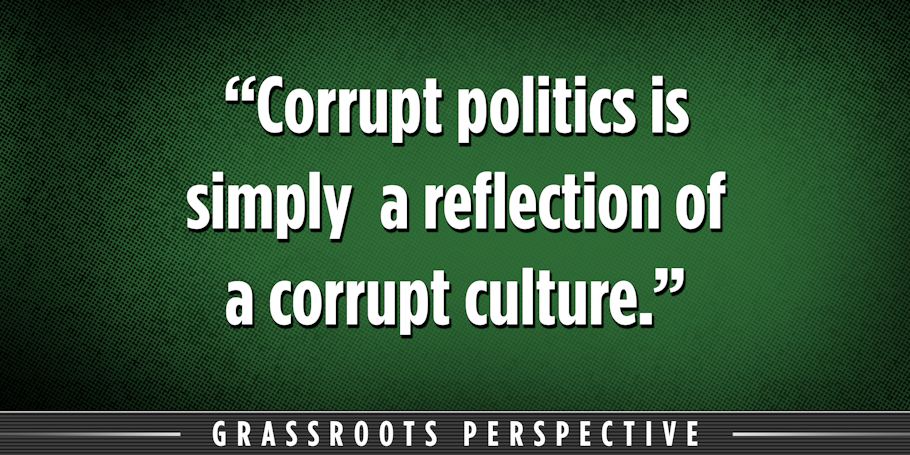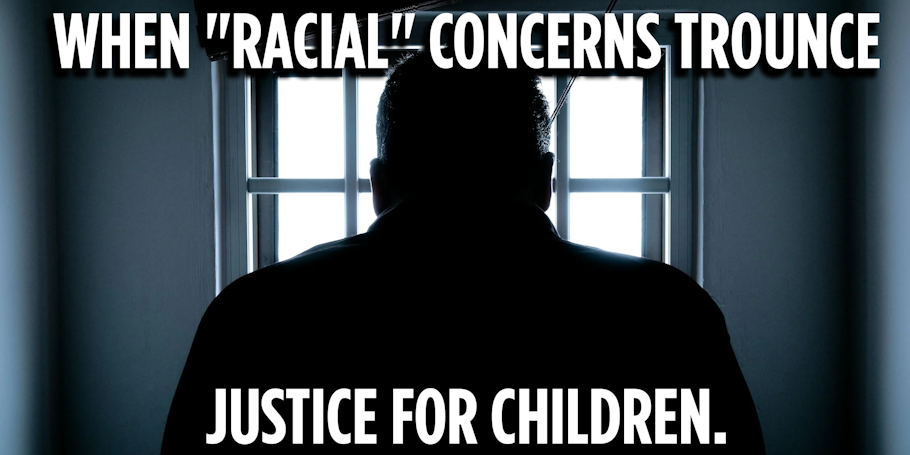An illustration of a slave auction from “Five Hundred Thousand Strokes for Freedom” by Wilson Armistead
Slavery lasted because slaves were convenient. Abortion remains because babies aren’t.
It is a well-known fact that slavery lasted as long as it did because the Southern economy was deeply reliant upon its free labor. While some slave owners may have appreciated the idea of freeing their slaves, there was little motivation for them to do so, both because slavery was legal, but also because freeing slaves was very expensive. The cost included not just adding wages for labor, but losing the initial investment of the slave purchase. It was just simply too convenient for slave owners to continue the infernal practice.
While it is easy to point fingers at those who owned slaves, few connect the dots between it and the modern-day parallel of abortion. In the ruling of Roe v. Wade (1973), much like the Dred Scot v. Sanford (1857) decision more than a century before, the Supreme Court confirmed that people can be reduced to property.
For decades, different arguments have come and gone about the reasons why abortion must remain legal. The earliest debates, even at the Supreme Court, relied upon the unclarified science about when life begins to justify the grizzly procedure. Technological advances in science have definitively answered that question and we now know that life begins at conception when new DNA is formed through the meeting of the sperm and the egg.
The arguments that remain to justify abortion largely rely upon the fact that children are difficult, starting with pregnancy through the eighteen or so years that make up the baby’s progression from birth to adulthood. The West has comfortably settled into an argument for abortion that looks much the same as reasons used to justify slavery: “It will cost too much,” “My life will have to change,” or “I’m just not ready to take on that responsibility.” Babies simply aren’t convenient and it costs too much physically, emotionally, financially, to care for them. Like the slave holders of old, we simply don’t want to pay the price to change our ways.
The Rhetoric
It is interesting to look closer at the rhetoric currently used to defend abortion. How does it look if we replace the abortion references with those of a slave owner?
In her most recent book, Gloria Steinem, dedicated it to Dr. John Sharpe, who performed an illegal abortion on her in 1957. As Steinem explains, the doctor knew that she didn’t want to marry the baby’s father, so he agreed to terminate the child. He agreed under these conditions: “You must promise me two things. First, you will not tell anyone my name. Second, you will do what you want to do with your life.” The dedication continues with Steinem oozing gratitude: “Dear Dr. Sharpe, I believe you, who knew the law was unjust, would not mind if I say this so long after your death: I’ve done the best I could with my life. This book is for you.”
Steinem has made it clear over the years just how grateful she is for that abortion, because she thinks her life would have been ruined had she given birth to that child.
So how would we look upon a slave owner showing gratitude to the slave dealer? After all, there were certainly a lot of benefits that the slave owner could point to that came directly from the dreadful practice. Perhaps our hypothetical slave owner would write: “I would like to dedicate my book to Mr. X, who sold me my 70 slaves. Without him, my plantation never would have flourished. I’ve done the best I could with my life. This book is for you.”
The clear take away from such a dedication would/should cause in us a deep sense of disgust. It is never okay for an individual to profit because of slavery. And yet because we have been convinced that convenience is an okay reason to abort a child, the disgust doesn’t surface in hearts of millions. It remains a gray area.
Let’s look at a few other simpler examples that are tossed around as sound bites seen on bumper stickers and signs at protests:
My body, my choice
My farm, my choice
Pro-child, Pro-choice
Pro-Black, Pro-slavery
Mind your own uterus
Mind your own plantation
Don’t like abortion, don’t have one
Don’t like slavery, don’t buy a slave
When pro-abortion rhetoric is replaced with pro-slavery concepts, it becomes quite clear that the arguments simply don’t hold water. Who among us would believe that you can both be for Black people and yet somehow think slavery is a good thing? And yet, millions each day are convinced that it is somehow okay to be pro-child and pro-choice while totally missing the logical inconsistency.
Slavery finally came to an end in the United States through the Civil War that decimated the South and left at least 620,000 Americans dead – exceeding our country’s loss in all other wars combined. Tragically, a different form of slavery is growing in our world. Women and children in particular are once again being reduced to sex-slaves and chattel – plucked from poor countries and communities to service the rich. Even in the idyllic countryside of Italy, it is not uncommon to see a lone camper with a black woman outside, duped into prostitution until she has “paid off” her pimp for her freedom and the return of her passport. This new slavery relies heavily upon the convenience of contraception and abortion and the disposability of human beings.
Slavery lasted because slaves were convenient. Abortion remains because babies aren’t. Human nature hasn’t changed, just our priorities and rhetoric. It is high time we started to think differently and see that the lesson from the Civil War doesn’t just apply to former slaves but to every human being: every human life is worth more than mere convenience.







